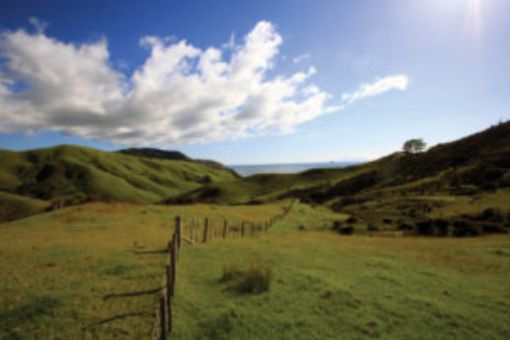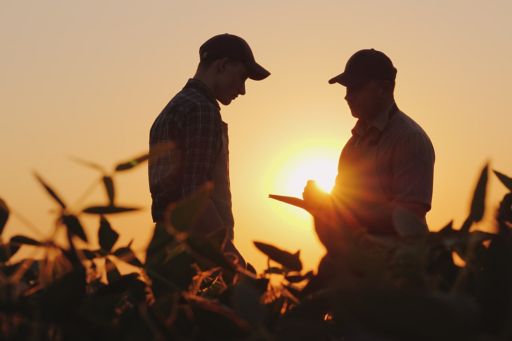Week in Review
In Aotearoa…
The culling of 80,000 hens is in progress at an Otago poultry farm to control the highly pathogenic H7N6 avian flu virus outbreak. While aggressive, this avian influenza is not the H5N1 strain that has raised concerns internationally. Investigations are underway at a second poultry farm in Otago, however no links have been found between the two poultry farms yet.
More than 120 teachers have participated in Sow the Seed’s Teacher’s Day Out in over five locations across the country in the past two weeks. The programme provides tailored support for New Zealand agricultural and horticultural science teachers, to help them connect their students’ with their ideal job and career.
ApiNZ and the Unique Manuka Factor Honey Association will merge to form a new honey industry body. The move comes after ApiNZ recognised that its voluntary membership funding had become financially unsustainable, particularly in light of the industry’s decreasing honey returns to producers. The merger aims to create a united industry with a strong export focus while advocating for bee health and government issues.
Fonterra Co-operative Group Limited’s season-to-date milk collection is nearly 5% ahead of last season's, largely due to favourable weather conditions in the North Island. Collections totalled 512.2 million kilogrammes of milk solids since 1 June this year, representing $3.7 billion in farmgate milk payouts so far.
In international news...
In Australia, up to 1,500 warehouse workers for supermarket Woolworths are in their second week of 24-hour strikes, resulting in empty shelves in stores. Woolworths confirmed that there was "limited stock flow" in some stores in Victoria, New South Wales, and the Australian Capital Territory. While all stores are still receiving regular deliveries, there is reduced frequency in some cases.
In Kenya, a new report suggests the country’s delay in the adoption of genetically modified (GM) crops has equated to a loss of approximately US$157 million (NZ$266 million). Despite approving GM technology in 2020, commercialisation has yet to happen at a significant scale in Kenya. The report by science advocacy group, Alliance for Science, highlights the potential of GM crops to enhance food security, improve farmer incomes, and address climate change and crop disease challenges.
A new project has been launched across 14 nations in Europe to increase the time spent between newborn dairy calves and their mothers, often referred to as the Cow-Calf Contact (CCC) system. The €3 million (NZ$5.4 million) initiative aims to ramp up the adoption of the system through establishing a European network addressing farmers' needs and knowledge gaps. It will also use national hubs to test new CCC practises, benefiting calves, cows, and farmers while meeting consumer demand.
- Farm at the centre of bird flu outbreak expecting further testing results back
- Connecting classrooms to careers on the land
- Honey industry group set to merge
- Peak milk flow bonanza for Fonterra
- ‘Treating workers like robots’: Woolworths blamed for empty supermarket shelves as warehouse strikes continue
- New report highlights cost of delay in adopting GM crops in Kenya
- €3m awarded to EU project promoting Cow-Calf Contact system
Spotlight Stories
Forestry and Wood Products Spotlight:

Oaks could complete local liquor source [Farmers Weekly, 2 December]
Planting trials are underway across New Zealand to determine whether oak trees can provide a valuable income stream for farmers, with applications for the wood ranging from flooring to wine and spirits flavouring. Early indications suggest New Zealand hybrid oaks have the desired density and strength for barrels used in wine and spirits production, potentially outperforming European oaks. State-owned farmer, Pāmu is in the final year of a four-year programme planting over 16,000 oak trees of multiple species across 20 farms nationwide. These forests will eventually serve as production forests and currently offer Oaks NZ the opportunity to measure growth rates. Original full article here
Tags: oak wood; barrels; flooring; wine; spirits
Food Security Collaboration Spotlight
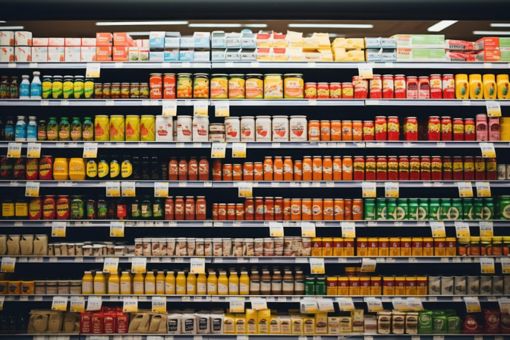
Instacart partnership seeks to improve food access for expectant mothers [The Packer, 27 November]
In Michigan, USA, a new initiative through the partnership of delivery company, Instacart, and multi-state healthcare provider, Molina Healthcare, is aiming to address food insecurity for expectant mothers. The aim of the collaboration is to reduce birth outcome disparities and improve equity for underserved populations throughout Michigan. A study highlighted that pregnant women living more than 1.5 miles (2.4 kilometres) from a supermarket are three times more likely to have a low-birth-weight child. The joint programme offers Instacart+ memberships and grocery stipends to expectant mothers facing food insecurity, enabling online grocery shopping with free delivery, thus enhancing access to healthy food options, convenience, and better nutrition. Original full article here
Tags: food security; delivery; grocery; health; mother; birth
Headline Stories
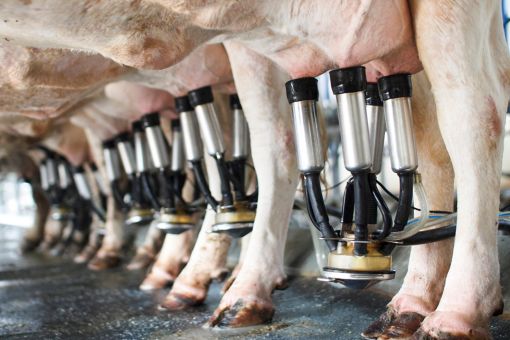
Milk chillers save money, reduce emissions [Farmers Weekly, 2 December]
A year after launching, nearly 50 farmers have installed new milk chilling technology through a "pay as you save" programme which is a collaboration between milk refrigeration company Coolcare, dairy processor Fonterra Co-operative Group Limited and investment finance providers. The programme offers a seven-year lease, allowing farmers to stay up to date with current technology. The milk chilling unit utilises fourth-generation refrigerant gases producing approximately 80% less carbon dioxide than older systems, to date the scheme has prevented the use of 5,800 tonnes of carbon equivalent cooling gas. The technology is also cost-effective, with one farmer saving $972 in electricity costs in just 30 days. Original full article here
Tags: milk; chilling; technology; carbon dioxide

Helen Clark Foundation calls for political action to reduce the prevalence of junk food and improve access to healthy foods to quell New Zealand’s growing obesity rates [The Helen Clark Foundation, 25 November]
A report released by public policy think tank, The Helen Clark Foundation, is calling for government action to address New Zealand's high obesity rates and their negative health and economic impacts. The report highlights that current policies focusing on personal responsibility are challenging to implement effectively due to food system barriers that hinder healthy choices. Obesity is costly, not only on the healthcare system, but the report suggests it causes a further $9 billion in lost productivity annually. The report urges the government to adopt policies like those in other countries to increase the accessibility of healthy food for New Zealanders, limit the marketing of unhealthy food to children, and facilitate adoption of new technologies for obesity treatment. Original full article here
Tags: policy; junk food; obesity; food system; nutrition; marketing
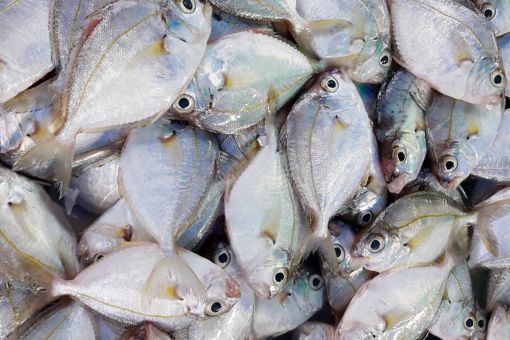
Controversial 'fish milk' touted as a drink option for kids [New York Post, 25 November]
Indonesia is converting fish protein into milk to address their nation’s shortage of cows and, consequently, milk. Abundant catches of ponyfish are deboned and processed into a fine white, protein-filled powder and then strawberry or chocolate flavour and water are added to produce the ‘milk’. The fish milk is being considered for Indonesia’s school lunch programmes in 2025, and they hope it could potentially become a US$4.5 billion (NZ$7.6 billion) industry and create 200,000 jobs. Whilst experts have hopes this will create a new industry, they face sceptics including the Indonesian Health Minister who believes there are many other options to combat the milk shortage. Original full article here
Tags: fish protein; milk; cows; ponyfish; processing
Get in touch
| Audit – Auckland Ian Proudfoot 09 367 5882 iproudfoot@kpmg.co.nz |
Agri-Food – Auckland Andrew Watene 09 367 5969 awatene@kpmg.co.nz |
Management Consulting – Wellington Justine Fitzmaurice 04 816 4845 jfitzmaurice@kpmg.co.nz |
Private Enterprise – Hamilton Hamish McDonald 07 858 6519 hamishmcdonald@kpmg.co.nz |
| Farm Enterprise – South Island Brent Love 03 683 1871 blove@kpmg.co.nz |
Agri-Food - South Island Paulette Elliott +64 2788 61744 pauletteelliott@kpmg.co.nz |
|
|


